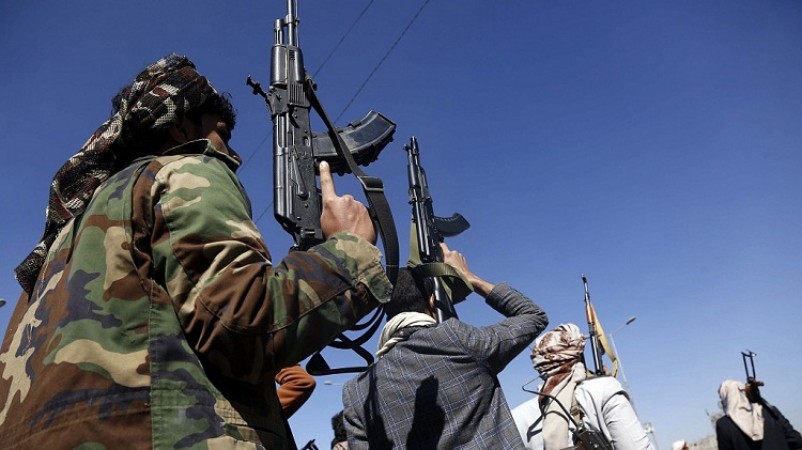
In response to ongoing attacks on Red Sea shipping by Yemen's Huthis, the United States and Britain carried out a second series of joint military strikes on the Iran-backed rebel group. The strikes, reported by residents in the rebel-held capital Sanaa around midnight, targeted eight Huthi locations, according to a joint statement from the US and UK. In retaliation, the Huthis claimed 18 strikes across their territory.
This marks the second wave of attacks, following the initial strikes earlier this month. The United States cited the Huthis' threats to civilian and military vessels as the reason for the military action. Despite these strikes, the Huthis remain steadfast in their commitment to continue attacks, adding to the broader crisis in the Middle East triggered by the Israel-Hamas conflict.
The latest strikes aimed at disrupting Huthi capabilities involved precision targeting of missile systems, launchers, air defense systems, radars, and weapons storage facilities, according to statements from Washington and London. British Foreign Secretary David Cameron emphasized the determination to degrade the Huthis' ability to carry out attacks on shipping.
In response, the Huthis, through military spokesman Yahya Saree, vowed retaliation, stating that the attacks "will not go unanswered and unpunished." The US military official revealed that the strikes utilized precision-guided munitions and Tomahawk cruise missiles, specifically targeting capabilities used to attack maritime vessels in the Red Sea, Bab al-Mandab, and Gulf of Aden.
While the Huthis reported strikes in various regions, there were no immediate concerns about civilian casualties at the targeted sites. The US defense official dismissed Huthi claims of firing on a US military cargo ship, stating that there was no evidence to support the assertion.
The conflict between the Huthis and Red Sea shipping began in November, with the rebels claiming to target Israeli-linked vessels in solidarity with Palestinians in Gaza. The Huthis have also declared US and British interests as legitimate targets.
Beyond military action, the US is employing diplomatic and financial pressure on the Huthis, recently redesignating them as a "terrorist" organization. The rebels reiterated their commitment to responding to any attacks on Yemen and preventing Israeli ships from passing through the Gulf of Aden and the Red Sea until the end of the Gaza war.
The Israel-Hamas conflict, which began in October, has resulted in significant casualties on both sides, fueling regional tensions and violence involving Iran-backed groups in Lebanon, Iraq, Syria, and Yemen.
Israel War Day-108: Netanyahu Rejects Hamas Offer, Stands Firm Amid Escalating Tensions
Iranian-Backed Terrorists Launch Major Missile Attack on Iraq's Ain al-Asad Airbase
Tensions Escalate as Jordan Accuses Israel of Targeting Gaza Hospital